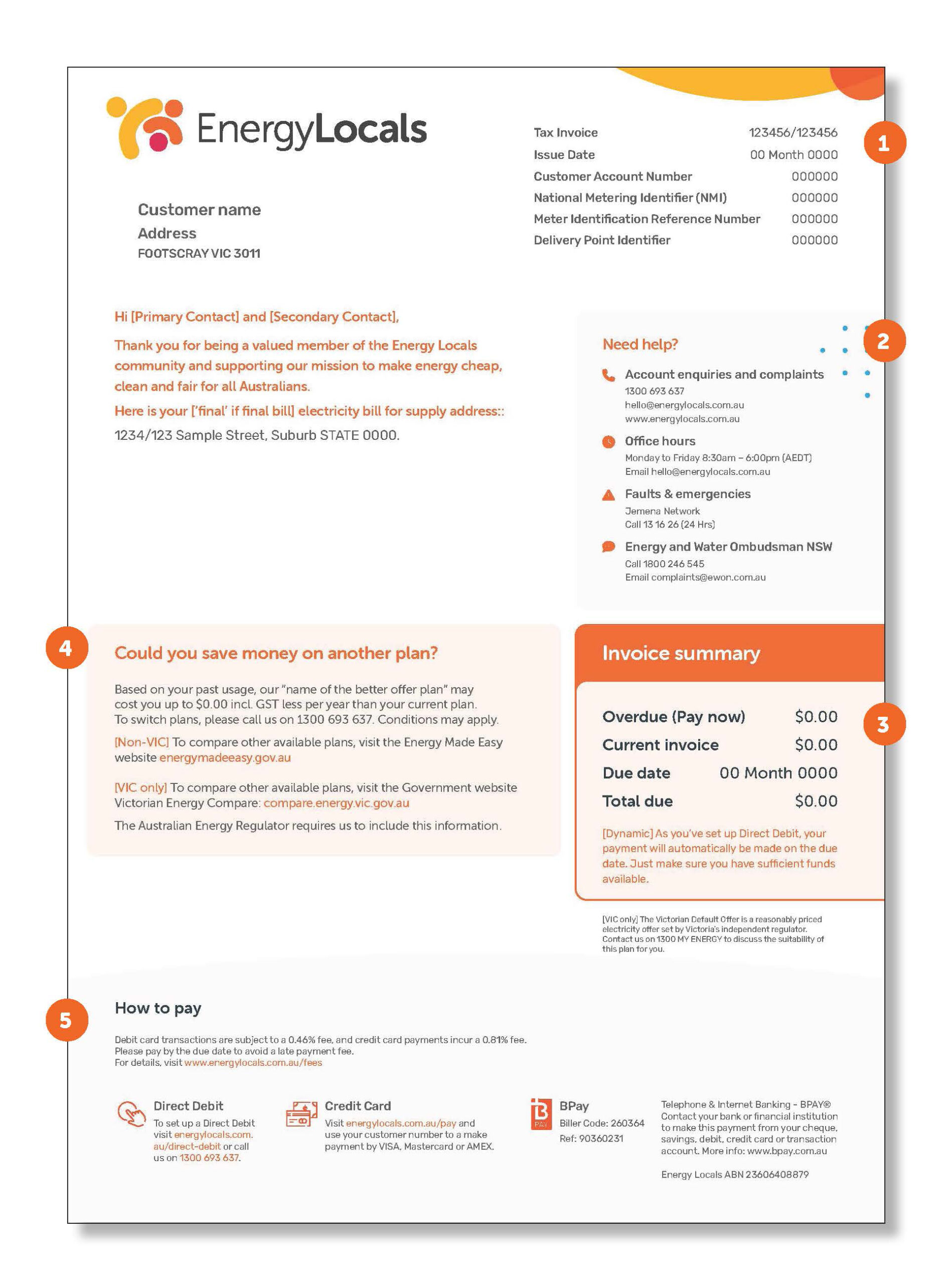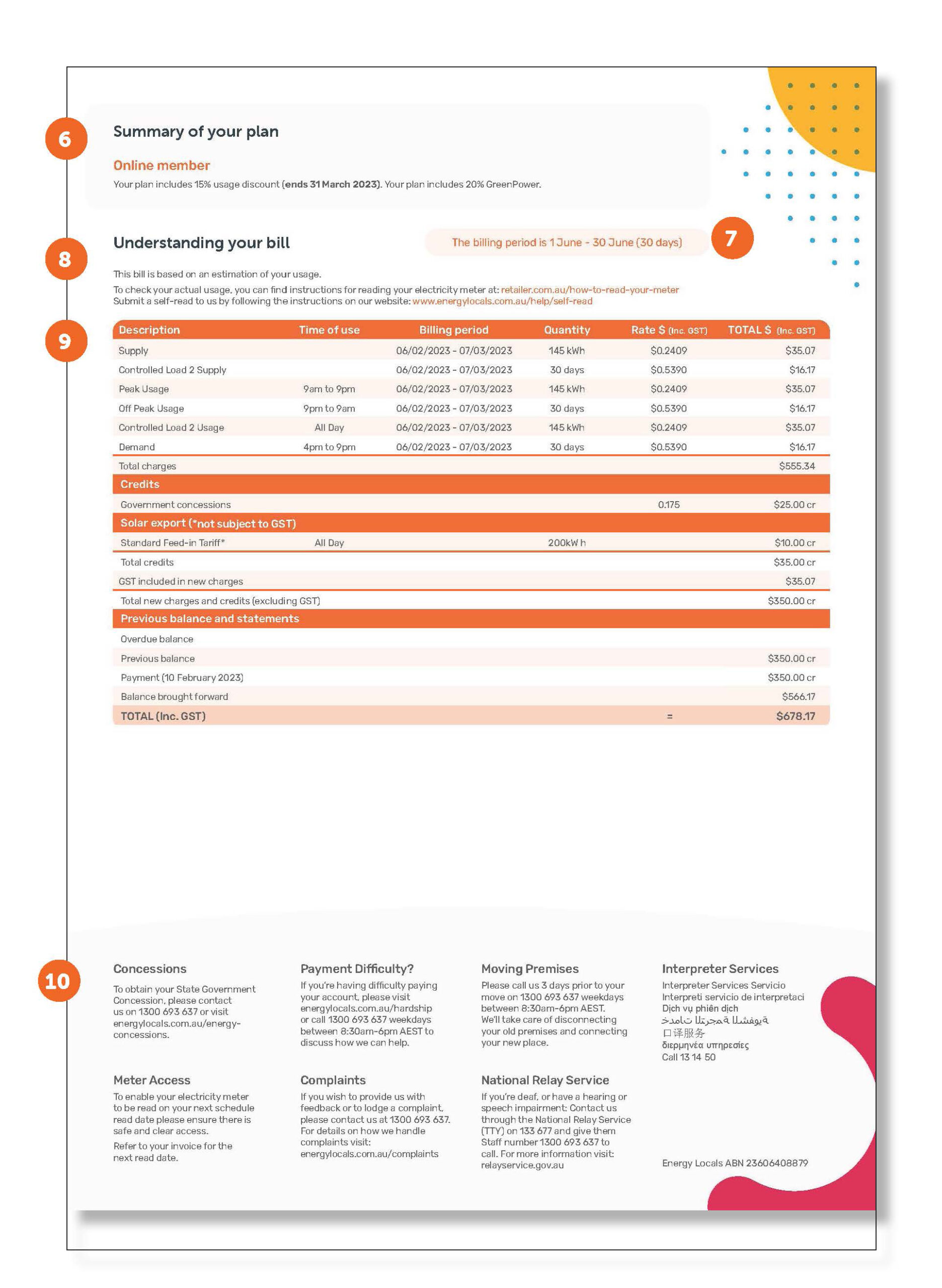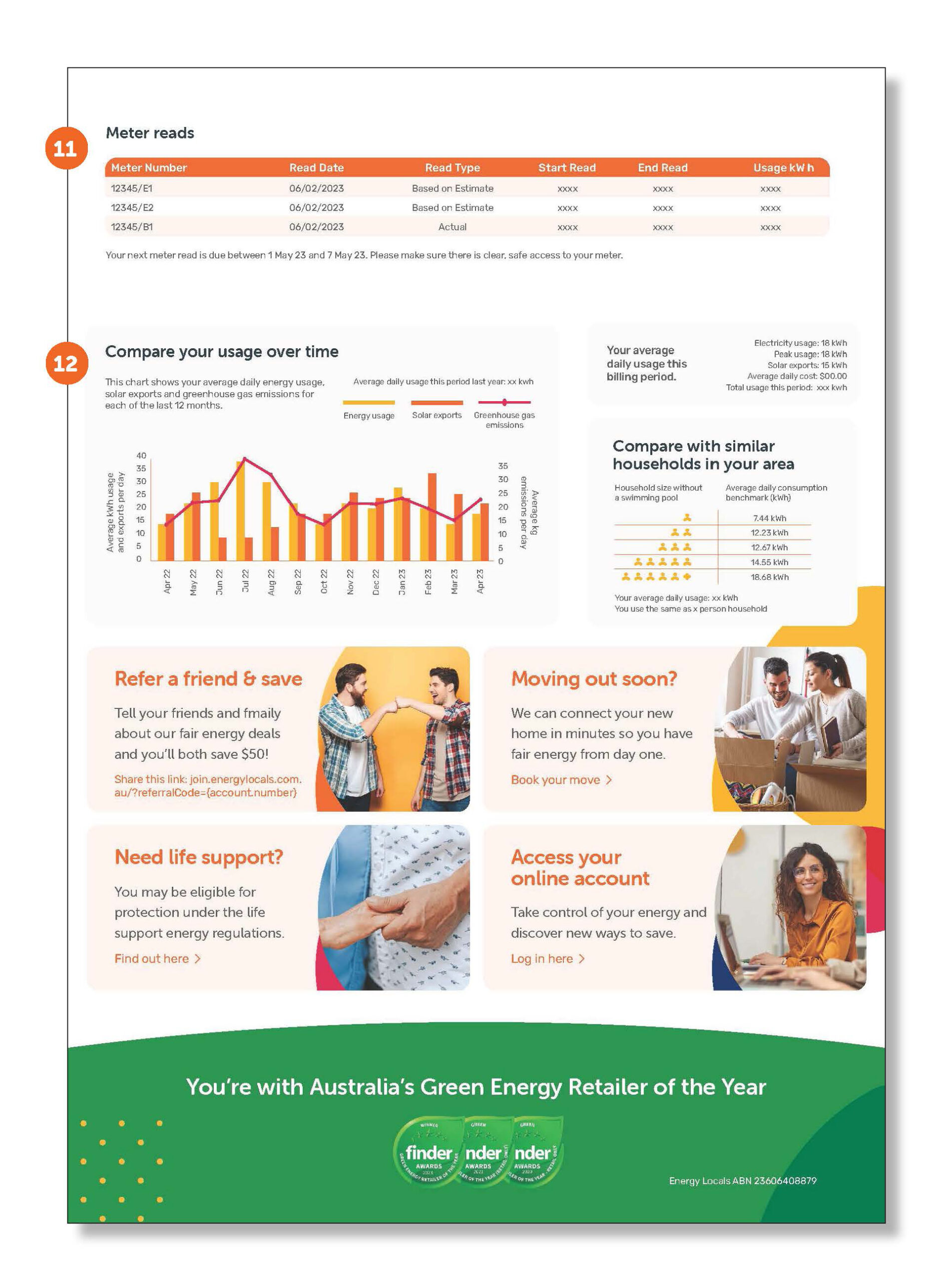
Sign up today
Make the switch to cheaper, cleaner, fairer power. Discover your prices.
My Account
Track your usage and spend, pay your bill, tell us you’re moving, and more.
With your Energy Locals bill, you can:

This is where you’ll find your account number, National Meter Identifier (NMI) for electricity or Meter Installation Reference Number (MIRN) for gas, invoice number, and issue date. Mention these when you contact us with any queries about your bill.
Here you’ll find the best number to call if you have a fault or emergency. Our details are also here in case you have a question for our Aussie-based team.
This section tells you what you need to pay for the power you’ve used and by when. If you have Direct Debit, we’ll automatically deduct the amount on the due date.
If your balance is lucky enough to include “CR,” it means you’re in credit and don’t need to pay.
We’ll regularly let you know if we have other plans available that you may be better off on based on your usage history.
If you’re already on the best plan for you we’ll also let you know.
Currently available in NSW, VIC, SA & QLD.
We offer a number of convenient ways to pay your bill. We recommend setting up Direct Debit to take the hassle out of paying your bills and avoid any late fees that may be applicable.

This is the Energy Locals plan you’re on.
The period and number of days for which your usage is calculated.
Actual read means we have accurate usage data for the period.
An estimated read occurs when the metering company has had trouble getting actual reads from your meter, often because it was not able to be accessed. Estimated reads are based on previous usage data.
A substitute read happens when there’s missing data, sometimes only a thirty-minute interval, that may be caused by a disruption to your meter communications.
Supply Charge: This is the daily charge that we collect for the network company as well as the cost of metering.
Usage Charges (e.g. anytime, peak, off-peak, etc.): These charges are calculated based on the number of kilowatt hours you’ve used, multiplied by the applicable rate.
Demand: These tariffs are a special kind of electricity pricing, found in some tariffs in NSW & QLD, calculated based on the highest amount of electricity you use during any 30-minute period within a month. Learn more.
Solar Feed-In Tariff: If you have solar panels and export excess energy to the grid, we’ll credit you for this, reducing your overall cost.
Membership Fee: This fee covers our operational expenses. Unlike some other providers, we show it separately to maintain transparency. It also means we don’t profit from your usage, aligning our interests with yours.
Supply Charge: This is the daily charge that we collect for the network company as well as the cost of metering.
Usage Charges: These charges are calculated based on the quantity of megajoules you’ve used, multiplied by the applicable rate.
Here, you can find information about other services we offer, such as checking concession eligibility, moving to a different property, and support for payment difficulties.

This section provides information about the meter readings used to calculate your energy bill for the billing period.
If you have a smart electricity meter, your opening read will be 0, as it starts again from your last bill, this is normal and there’s nothing to worry about.
Here, you can see how your average energy usage changes and, for Victorian addresses, how it stacks up against other households.